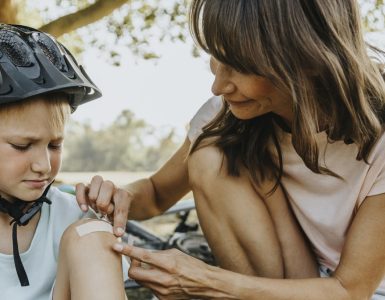As we move into the season of school breaks and holiday parties, there’s more opportunity for teens to be tempted by drugs and alcohol. The fact is, drinking alcohol during adolescence can damage the parts of the brain responsible for decision-making, self-control, memory, and learning–and the effects can be long-term. What’s more, the younger kids are when they start drinking, the more likely they are to become addicted.
The good news is that parents have tremendous influence over a child’s decision to use alcohol or drugs. In fact, the most common reason young people give for not using substances is not wanting to harm their relationships with the adults in their lives. Your influence starts by being a role model. If you drink, do so in moderation. Never drive after drinking. Do not use illegal drugs. Don’t ask your child to bring you alcohol. Giving them facts, staying involved in their life, and fostering involvement in activities are all powerful deterrents.
Take action now
Safeguarding your kids from a drug or alcohol habit begins by reaching them before experimentation begins. But it’s really never too late to help them get–and stay–on the right track. Instead of using the usual scare tactics or lecturing, try these tips:
Make it a two-way dialogue. As a start, bring up substance use depicted in the media. Some TV programs, movies, websites or songs glamorize or trivialize drug use. Talk about what your teen has seen or heard and listen their views on this material.
Monitor what they watch. Consider choosing movies your teen or the family sees by reading family-friendly reviews. (e.g. www.parentpreviews.com).
Not sure what to say? Give them facts. Tell, them, “drinking can lead to bad decision-making, like driving drunk, using other drugs or engaging in risky sexual behavior.” “Misusing prescription drugs can lead to addiction as bad as heroin.”
Tell them about the dangers of inhalants in common household products. Inhaling the fumes from products from hair and cooking spray to glue, rubber cement, and paint thinner is often the first substance abuse option for young teens. Emphasize that inhalants are deadly chemicals — not a harmless way to get high. Closely supervise the use of these products.
Role-play several come-back lines. For example, when offered marijuana, your child could try changing the subject as a distraction. They might say, “No thanks. Hey, I thought we were going to shoot some hoops today.”
Be clear about the rules and invite them to discuss and agree on the consequences. Your rules may include leaving a party where drug use occurs and not riding in a car with a driver who has been drinking. You might decide on the consequence that “if you drink or use drugs, you can’t go to the senior prom.” Praise your child for good behavior and staying away from substances. If rules are broken, help your child learn from his or her behavior.
Get to know your teen’s friends and their parents. When your kids want to go to someone’s house, check to see if an adult will be home. Tell the parents the rules you have for your teen.
Encourage your kids to call you if they ever feel uneasy or unsafe. Agree on a code word they can use to let you know they want to leave a risky situation.
Encourage them to strive to succeed in school. Work with teachers and counselors to find what they are good at, and if needed, look into tutors or mentors to help them. Check in on homework regularly.
Get them involved in activities. Think beyond sports, music and school activities to community activities, like volunteering to walk a shelter dog or baking for the homeless.
Stay involved in their lives. Listen when they talk about their music, their hobbies or other interests. Be responsive and don’t judge.
Try to have 5 to 7 sit-down meals together a week. Teens are four times less likely to use alcohol, tobacco or marijuana than those who dined with their parents fewer than three times a week.
Tap into support from a variety of adults. Kids who have the caring support from relatives, teachers, neighbors, community workers and others are less likely to use alcohol and other substances.
For Health Advocate members
- If you’re a Health Advocate member with access to our EAP+Work/Life Program and have substance issues in your family or need help with parenting concerns, talk to your Health Advocate Licensed Professional Counselor. You’ll receive free, confidential help, and if needed, referrals for additional support.
- If you’re Health Advocate member with our Advocacy services, contact us to speak with a Personal Health Advocate who specializes in behavioral health. The Personal Health Advocate can help you identify resources for help.
Sources: National Center on Addiction and Substance Abuse; Mayo Clinic; Healthychildren.org Massachusetts Department of Health, Bureau of Substance Abuse, 2015



